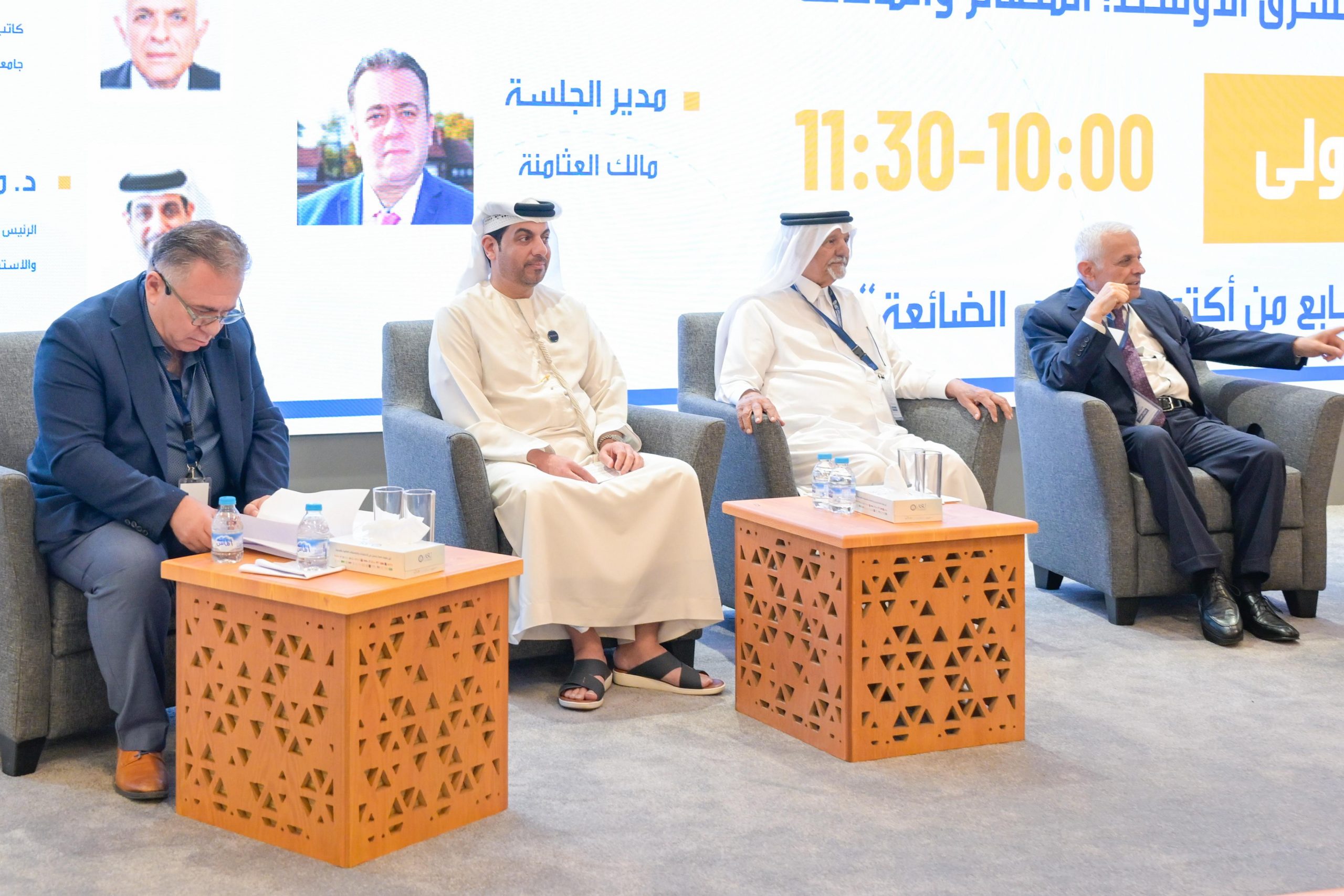In conjunction with the opening of its Virtual Office in the Jordanian capital, Amman, and under the patronage of H.E. Dr. Bisher Al-Khasawneh, former prime minister of Jordan, Dr. Mohammed Al-Ali, CEO of TRENDS Research & Advisory, took part in the forum “Worlds of Political Conflict in the Middle East: Destinies and Outcomes,” organized by the Applied Science Private University and the Eilaf Center for Studies and Research in Amman.
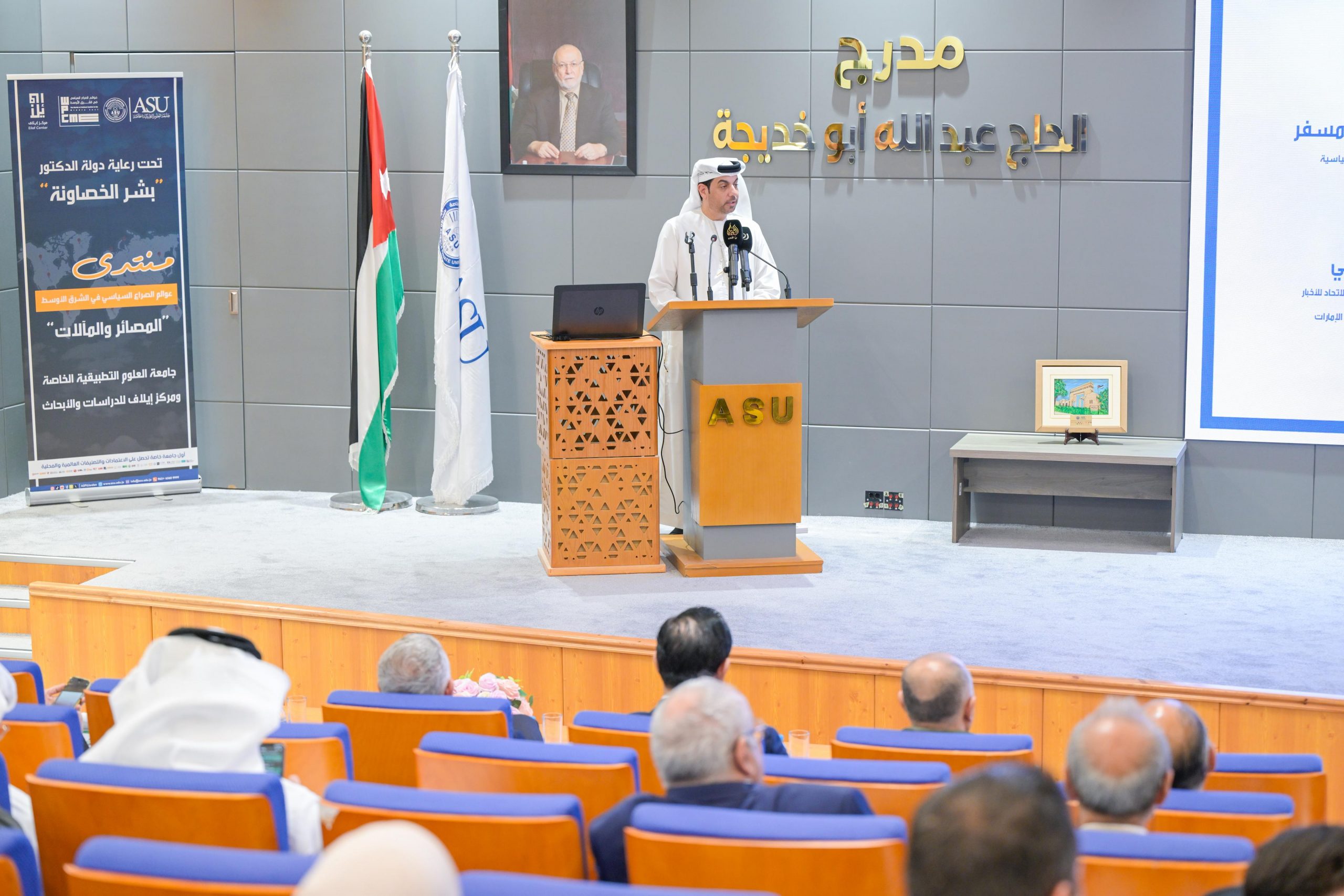
The forum witnessed broad participation from numerous political, academic, cultural, and media figures from across the Arab region and internationally, including Jordan, Saudi Arabia, the United Arab Emirates, Qatar, Egypt, Iraq, Kuwait, Syria, Türkiye, Lebanon, and Mauritania. The first session – The Region After October 7 and the Lost Opportunities – discussed the implications of recent developments on the future of regional security.
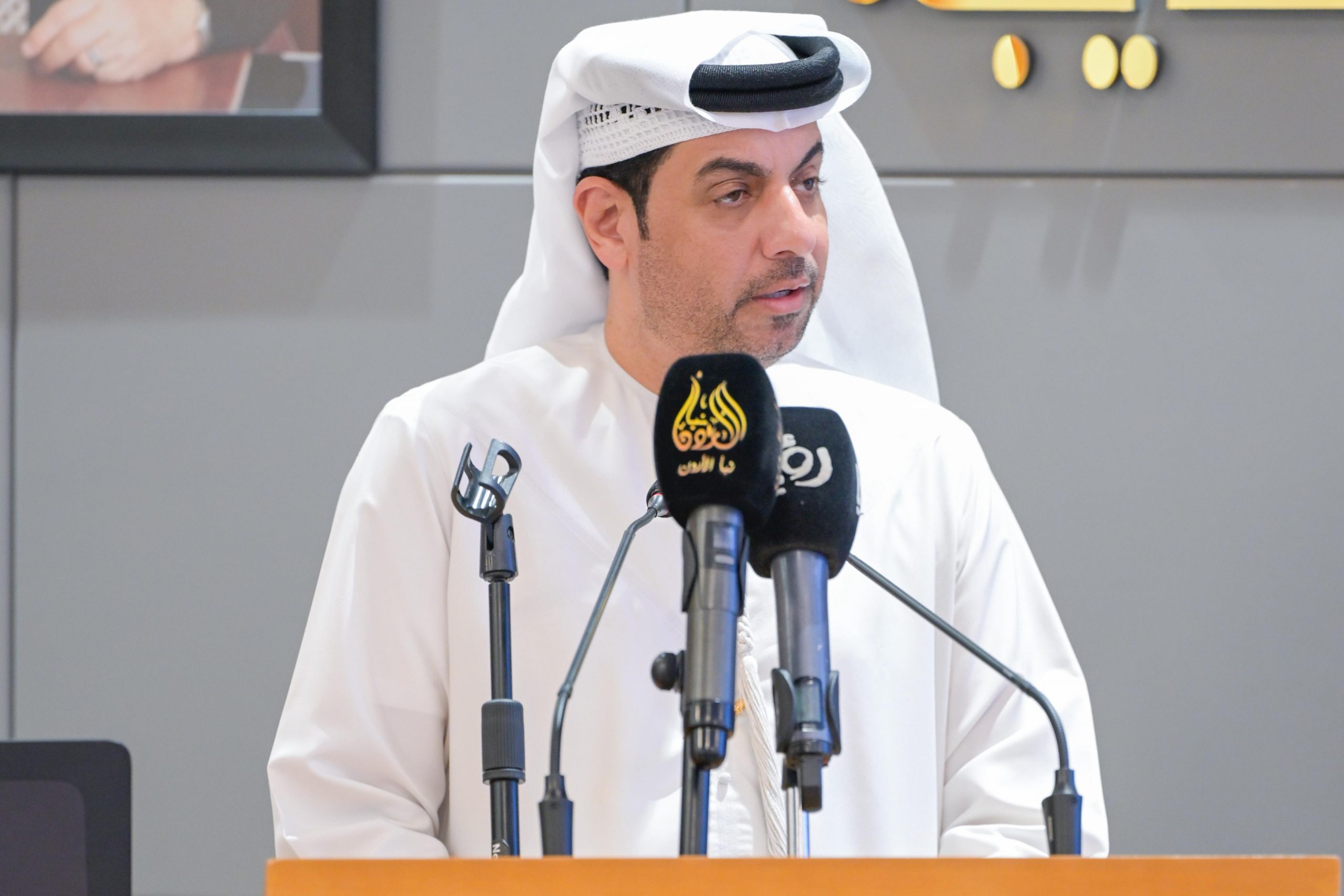
In his remarks during the session, Dr. Al-Ali stressed that the events of October 7 marked a pivotal turning point that reshaped the features of conflict and alliances in the region. He explained that Israel’s military escalation on multiple fronts – from Palestine and Lebanon to Yemen, Syria, and Iran – has narrowed opportunities for de-escalation and raised the risks of sliding into a broader confrontation.
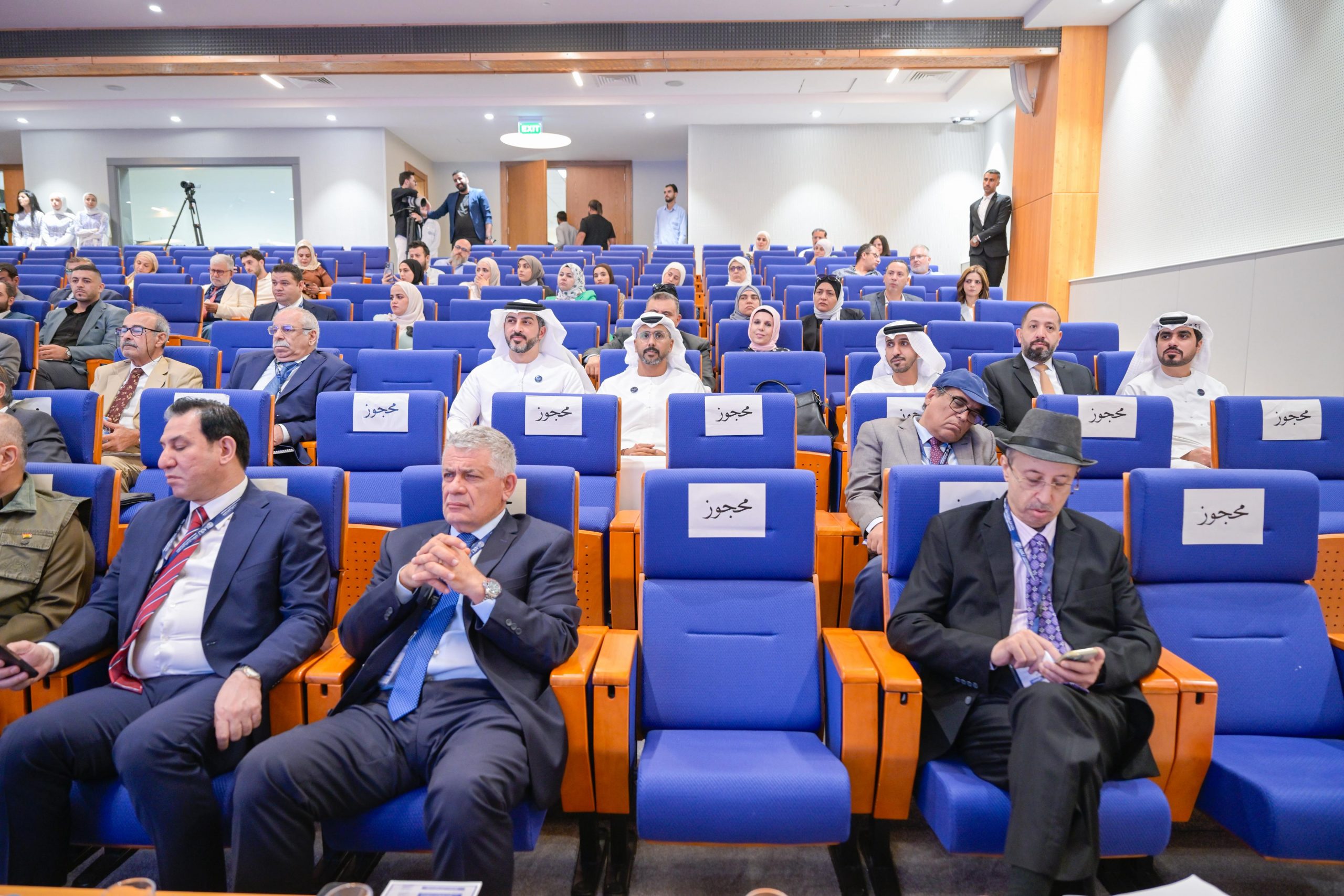
He further pointed out that the absence of a just solution to the Palestinian issue, coupled with the continuation of hardline Israeli policies, has obstructed peace processes and weakened prospects for regional cooperation. The TRENDS CEO also warned of the repercussions of targeting certain regional mediation efforts, such as Qatar’s role in de-escalation initiatives, which pose additional challenges to stabilization efforts. He added that the nature of the U.S. stance toward these developments remains uncertain, given the complexities of the situation.
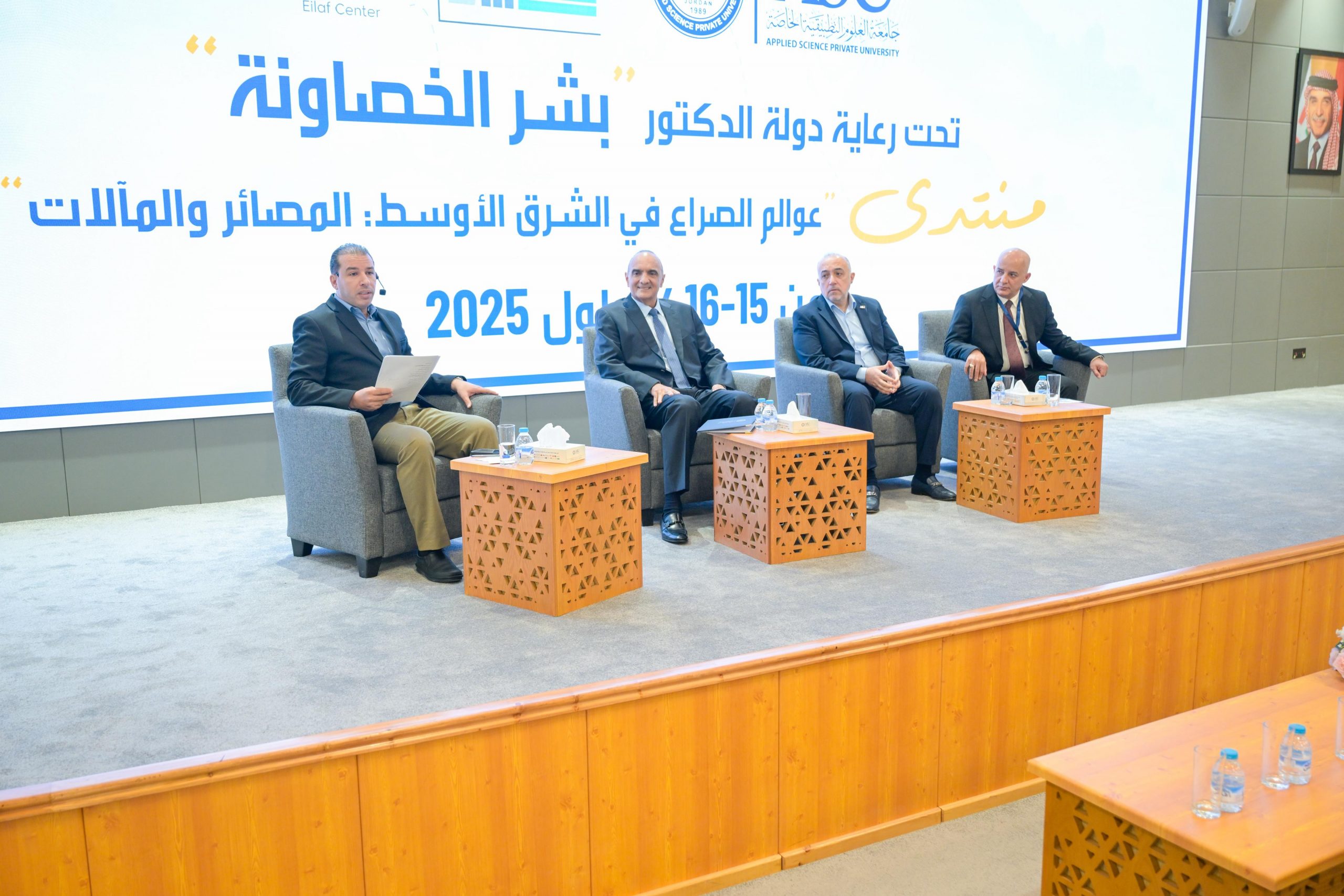
Concluding his intervention, Dr. Mohammed Al-Ali emphasized that the Palestinian issue remains the core of the conflict in the Middle East, affirming that genuine stability cannot be achieved without returning to a just political path based on the two-state solution. He underlined the importance of a unified Arab position to press for an end to Israeli violations and to create the conditions necessary for achieving lasting peace.



